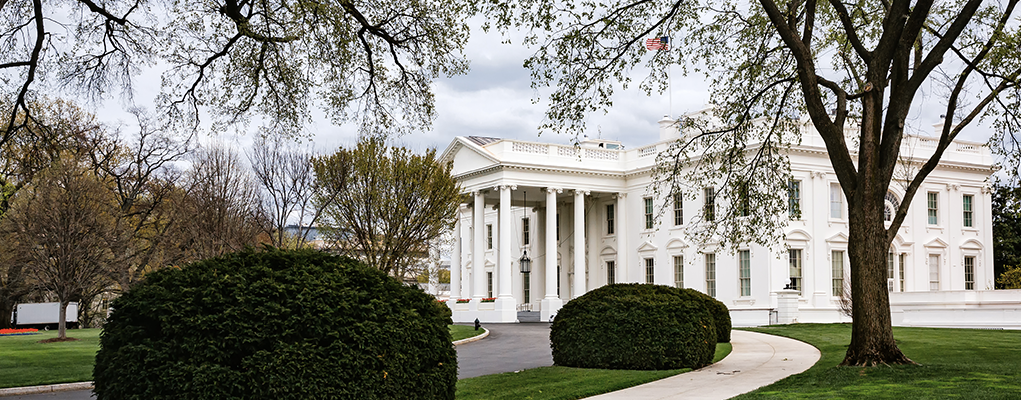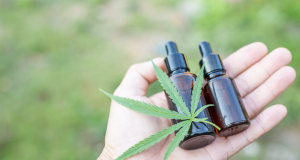Tuesday, Jan. 28, 2020
VAPING WEEKLY UPDATE PODCAST TRANSCRIPT
Due to new federal laws governing tobacco and nicotine use including the marketing and dissemination of product information, Vaping Weekly is now only intended for adults aged 21 years and over. If you live in a state or jurisdiction that allows for younger, this podcast is then for those over the age of 18 years.
Listener discretion is advised.
My name is Michael McGrady, your host, and the public policy columnist for the English edition of VapingPost.com.
This is Vaping Weekly Update and here is the news that vapers, shop owners, and activists need to know for this week, published on Tuesday, Jan. 28, 2020.
To lead us off this week, we turn our attention to San Francisco. Catherine Ho of The San Francisco Chronicle reports that vape shops in the city are “scrambling” to prepare for a sweeping ban on e-cigarettes and vaping products within city limits.
According to the report and Vaping Post’s previous reporting, the ban takes effect on Jan. 29. The ban only covers vaping products that contain nicotine and not products that contain CBD and THC. Combustible cigarettes are also still left on the shelves of convenience stores and bodegas across the city.
Industry and harm reduction advocates believe that this policy is hypocritical. Presented as a policy to curtail youth vaping in the city and county of San Francisco, the law leaves products that have more demonstrable harm on human health still available.
For further context, reporting by the San Francisco Examiner found that Supervisor Shamann Walton received at least $5,000 from a Juul Labs lobbyist.
Walton earned national praise for taking a lead stance against vaping, by proposing the controversial bill that banned all nicotine e-cigarettes in city limits.
The Examiner goes on to report that Walton returned the funding after being asked by columnist Joe Fitzgerald Rodriguez about it.
Interesting news.
In other state news, we move to the Midwest.
Police officials in Cheyenne, Wyoming recently said that they are unable to enforce the new age restrictions mandated by the federal government.
Despite the fact that the FDA lifted the minimum legal sales age to purchase tobacco and nicotine from 18 years to 21 years, the Cheyenne Police Department is adamant that their enforcement ability is restricted to only state laws.
Wyoming has a law in place that only permits the state’s executive branch to enforce state statute. Federal law is left to federal authorities.
Next door in Nebraska, a bill that would declare a ban on flavored vapor products.
LB 1176, introduced by state Sen. Tom Briese, would issue a statewide ban on flavored vaping liquid across the state.
North in South Dakota, a similar proposal has been introduced. South Dakota lawmakers are considering banning many flavors of vaping products in order to curb usage among teens, reported the Associated Press and the wire services.
Rep. Carl Perry, an Aberdeen Republican, filed a bill Thursday that would make it illegal to sell or possess vaping flavors other than mint, menthol, and tobacco.
On a similar note, Vermont is considering legislation that would ban all flavored tobacco and vaping products in a bid to protect youth.
This goes to show that the state ban legislative trend is just alive and well in midwest and mountain states, and on the east coast, besides in liberal havens like California or Oregon or New York. All this said, there is a record number of vaping laws currently being proposed.
In other state news, governors in states like Washington and Wisconsin have called on their legislatures to pass bills that would ban the sale of flavored products and further restrict product access.
New Jersey, following this policy trend, is the first state in the union to ban flavored vapor products through legislation.
In Washington, D.C., members of the House of Representatives have summoned the presence of Juul and other vaping manufacturers for a special hearing on youth uptake.
U.S. Rep. Diana DeGette, a Democrat of Colorado, released a public statement over the past couple of weeks calling these companies out for leaving consumers in the dark about the harms of vaping. No more action has yet been announced from the Democratic-controlled House.
In brief science news, researchers at New York University, the University of Oklahoma, and the University of Nevada-Reno have published a new study in the academic journal Nicotine & Tobacco Research. This study argues that most young people do not vape, and even fewer vape regularly.
“Reacting too quickly to reports of youth vaping without considering the full context could do more harm than good,” said Dr. David Abrams of NYU, one of the authors of the study.
A case of potentially “reacting too quickly” can be seen in the efforts to address EVALI, the official classification of the vaping lung injury sweeping across the country.
All of that said, the federal Centers for Disease Control and Prevention have amended their warnings related to vaping and the EVALI lung injury outbreak. Now, the CDC is working to depict the warnings of vaping and the associated lung injury with the specific products causing issues. These include hemp and CBD containing vapes and illegal THC.
Secretary of Health and Human Services Alex Azar reportedly said that he and Food and Drug Commissioner Stephen Hahn are working hand-in-hand with industry to reform the PMTA process for small businesses. Our counterparts at Vaping360 noted this claim, which occurred during a conservative talk show appearance by Azar.
In hemp, a bipartisan coalition of House members proposed a bill that would legalize hemp and CBD dietary supplements and would require the FDA to issue official regulatory guidance. The probability of this bill passing and becoming law is very high.
In international headlines, Mexico’s national legislature expects to legalize marijuana before the end of April of this year.
Such a move could leave the United States as the only North American country that considers recreational marijuana a Schedule I narcotic and prosecutes violators of such laws.
It should also be noted that more and more federal prosecutors are declining to prosecute federal marijuana charges.
At the World Health Organization, the international governmental organization reaffirmed the claim that e-cigarettes are harmful to human health. However, experts in the U.K. have again urged the international health body to refrain from wild generalizations, given the apparent harm reduced characteristics of e-cigarettes and vapor products.
The U.K. is one of the only governments in the world to endorse vaping as a safer alternative to combustible cigarettes.
In the Asia-Pacific region, the Philippines statistics agency found that 640,000 out of the country’s 15.9 million smokers have kicked the habit. This is despite the harsh crackdown on tobacco and vaping by controversial President Rodrigo Duterte.
In general world health news, the oft-reported coronavirus sweeping through China and into the other parts of the world like the United States is another example of public hysteria.
I only mention this because we can draw comparisons between the global vaping panic and the panic of the coronavirus. Despite the fact that the coronavirus is very contagious, it has been contained to over 2,500 cases and only a portion of deaths in the entire world.
While the coronavirus case is contagious, the portion of the dead is still small. This is the case for vaping, too. International numbers of EVALI are only in the thousands with less than 100 confirmed deaths caused by the ailment.
And that’s the news.
Thanks again for listening!
If you haven’t already, check out my latest interviews with David Goerlitz, the Winston Man, and New Zealand smoking cessation expert Marewa Glover, in the first two episodes of Vaping Weekly Unfiltered.
You can listen to Vaping Weekly on Spotify, Apple Podcasts, Google Podcasts, PocketCasts, or where ever you get your podcasts. Also, feel free to drop a review. It helps us a lot.
Vaping Weekly is created and hosted by Michael McGrady.
The editorial team for VapingPost.com also produces this show.
Sound design and recording of this podcast are done at Perihelion Creations in Monument, Colorado.
Vaping Weekly is presented by Anchor.fm.
We are independent of big tobacco.












